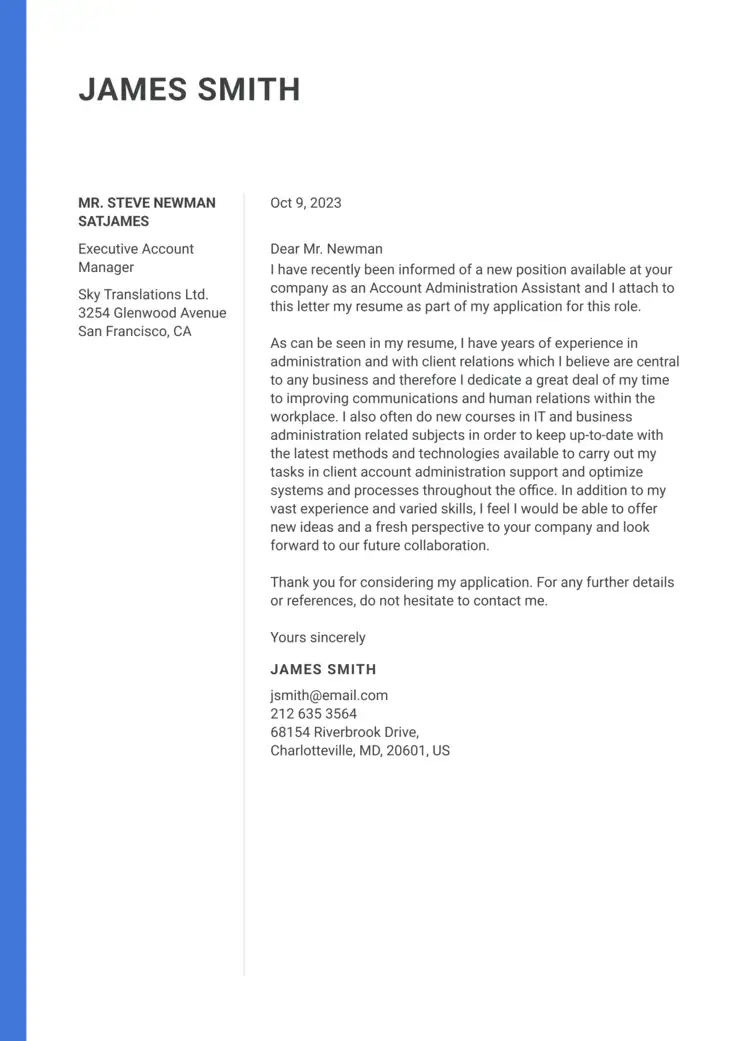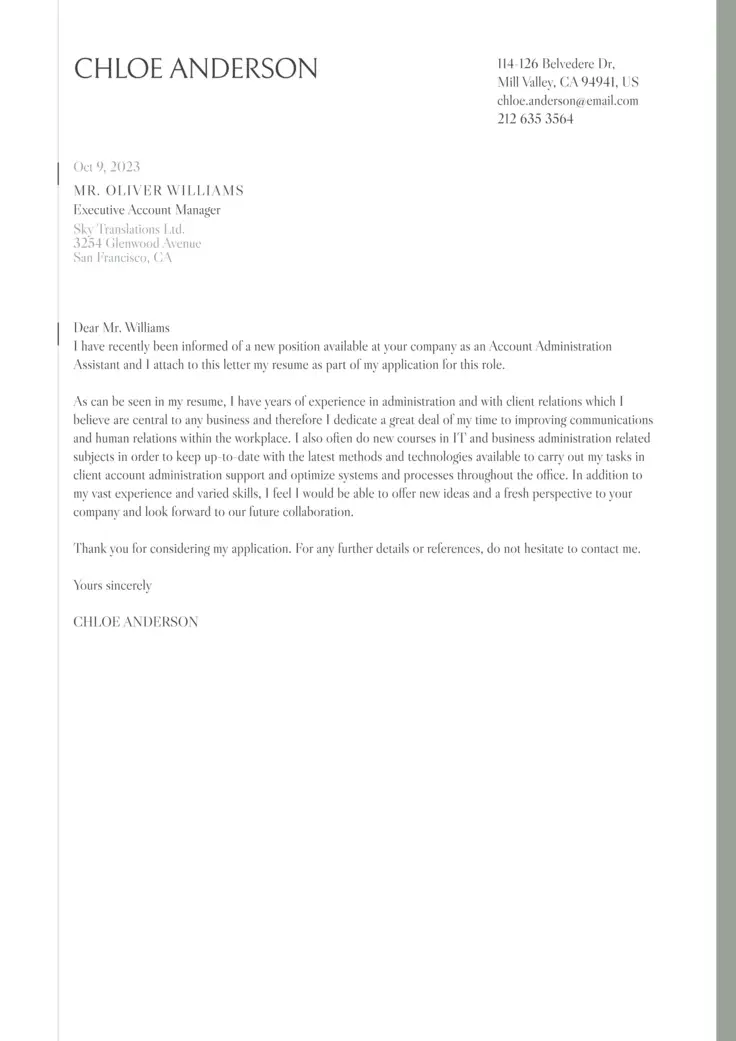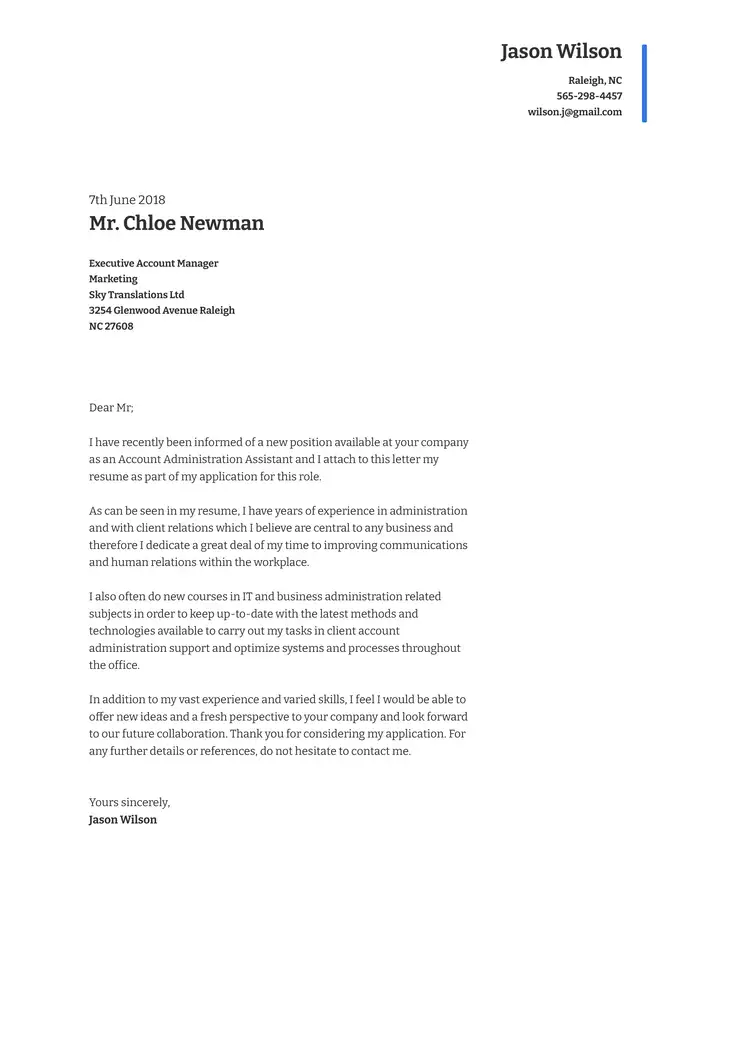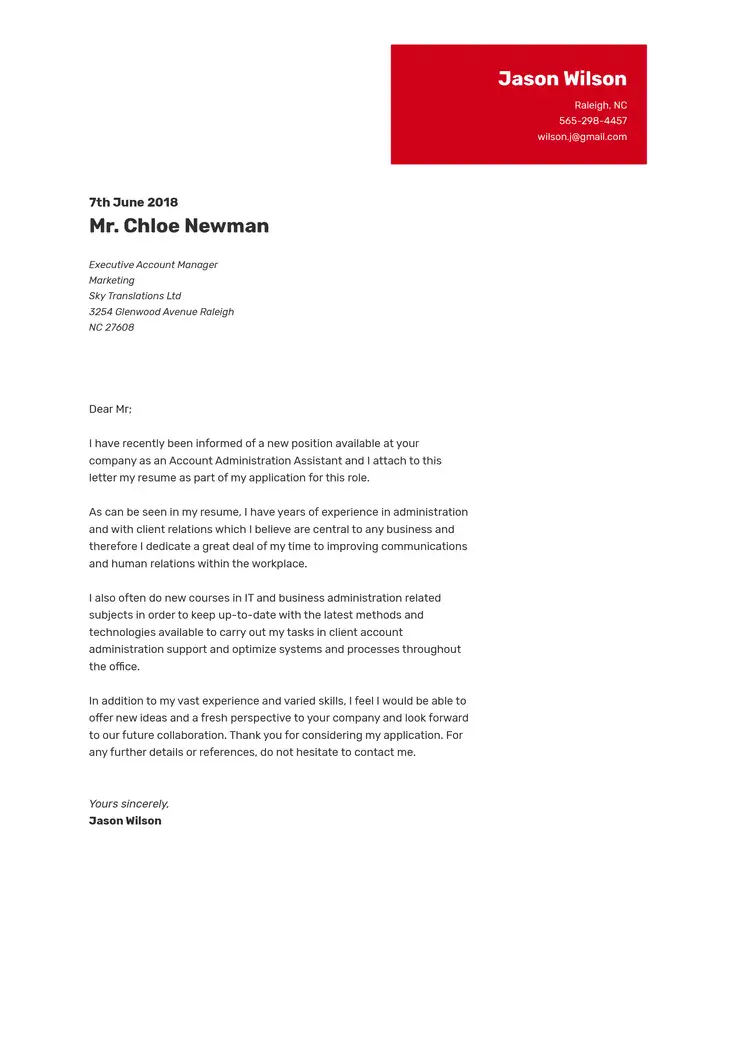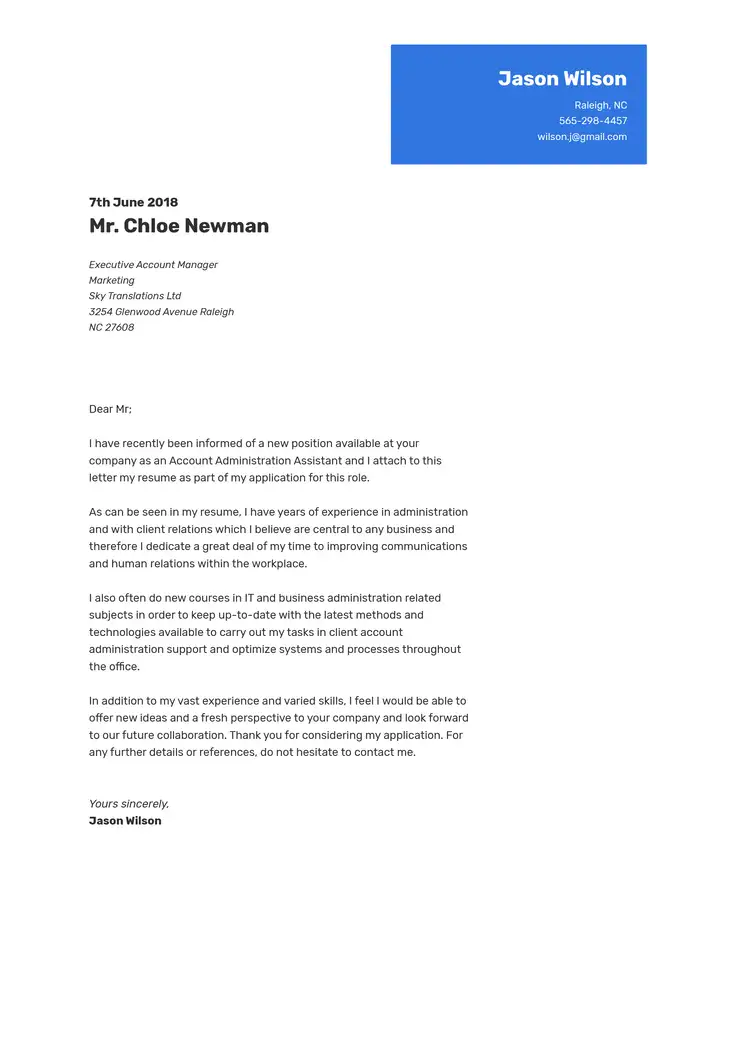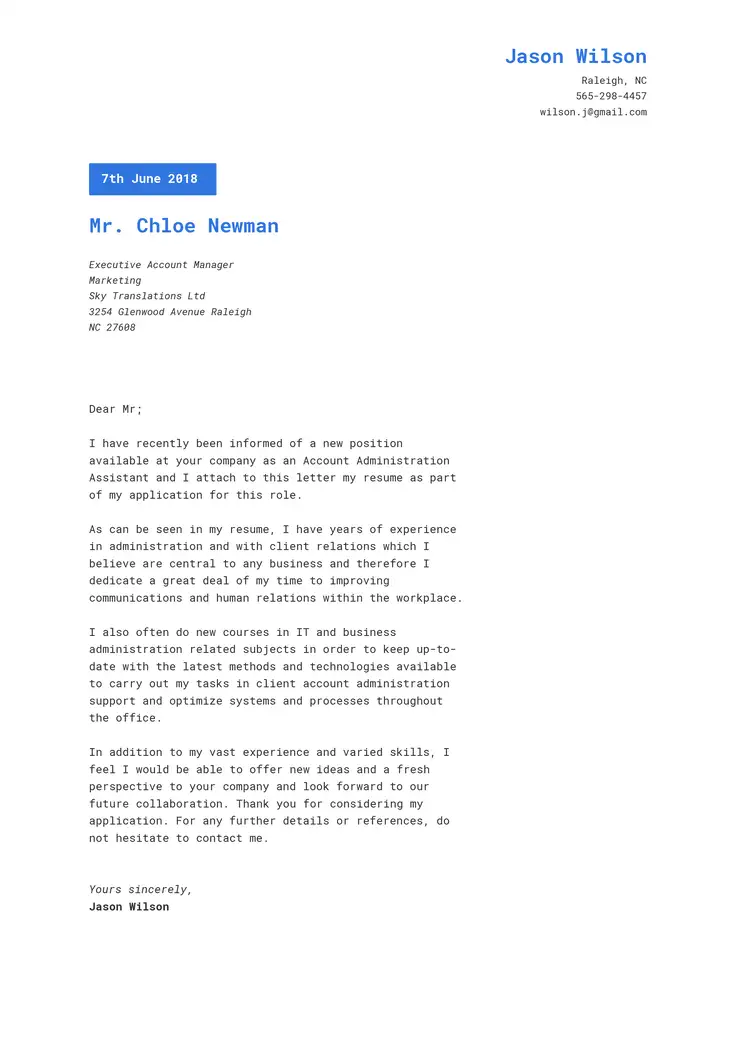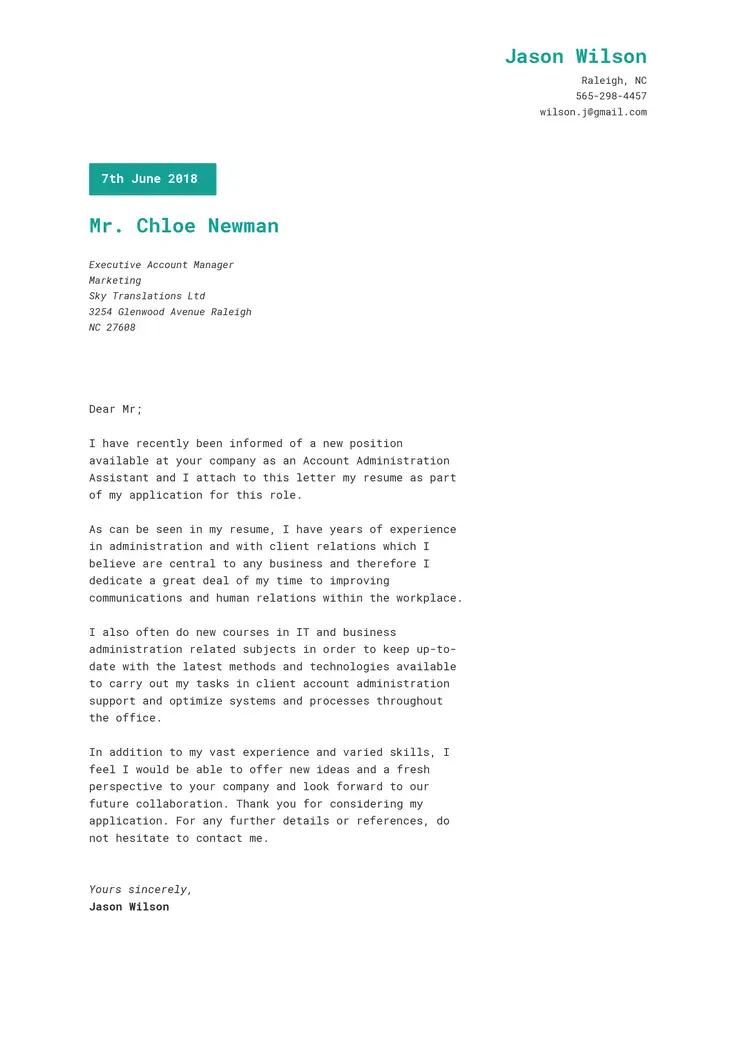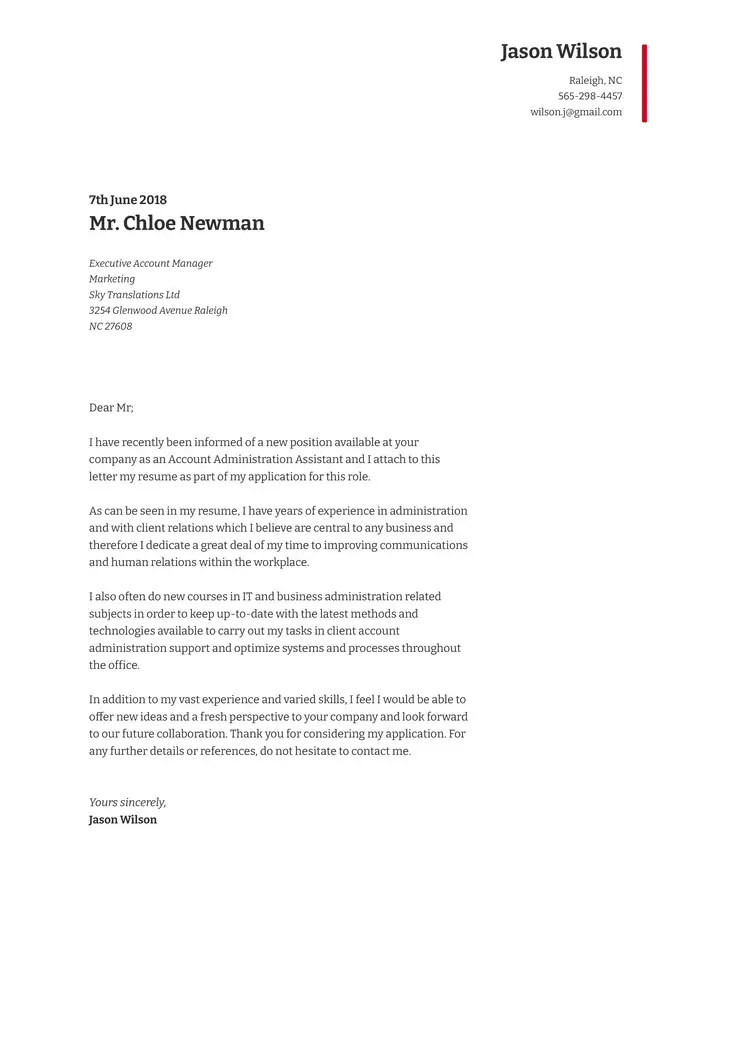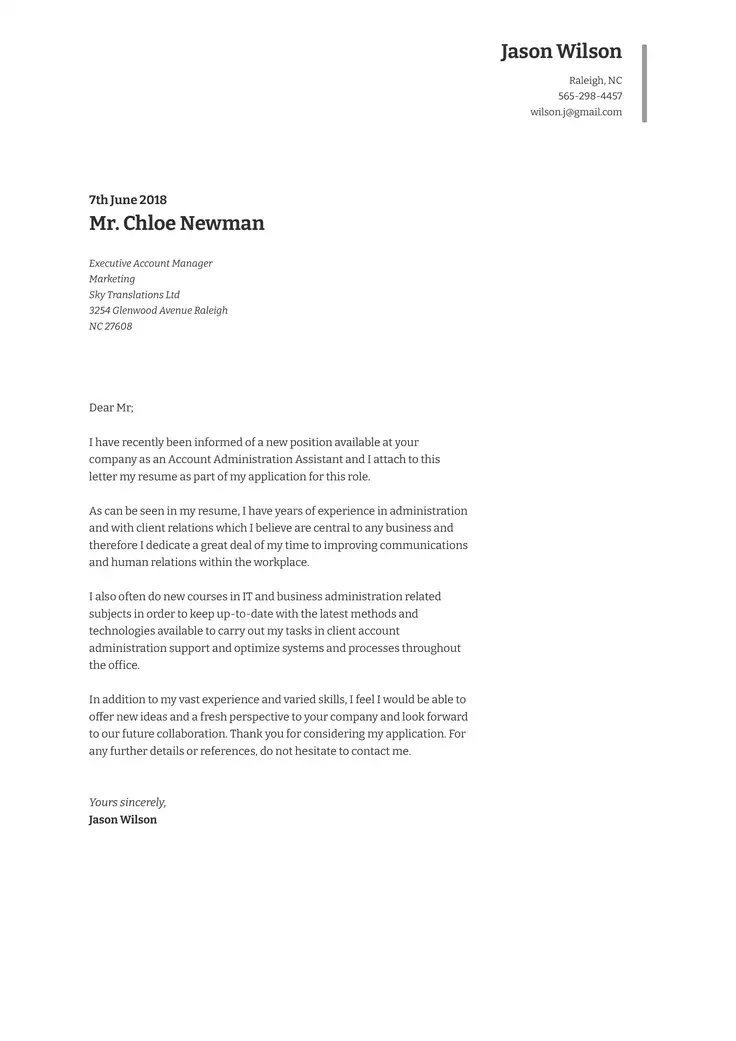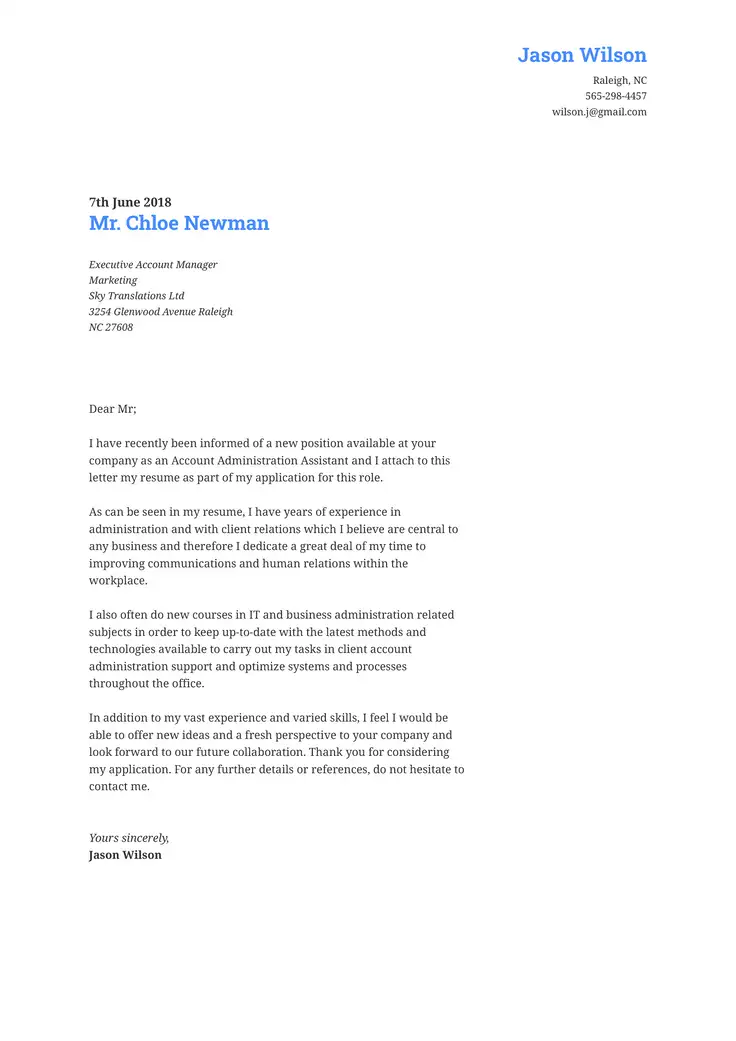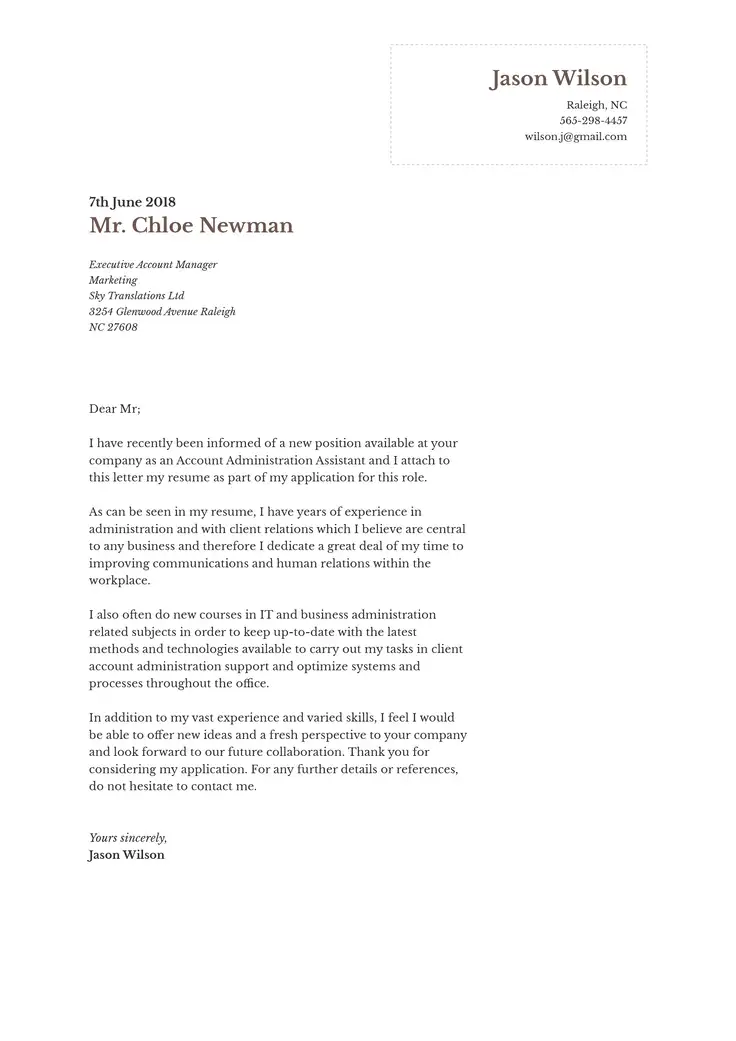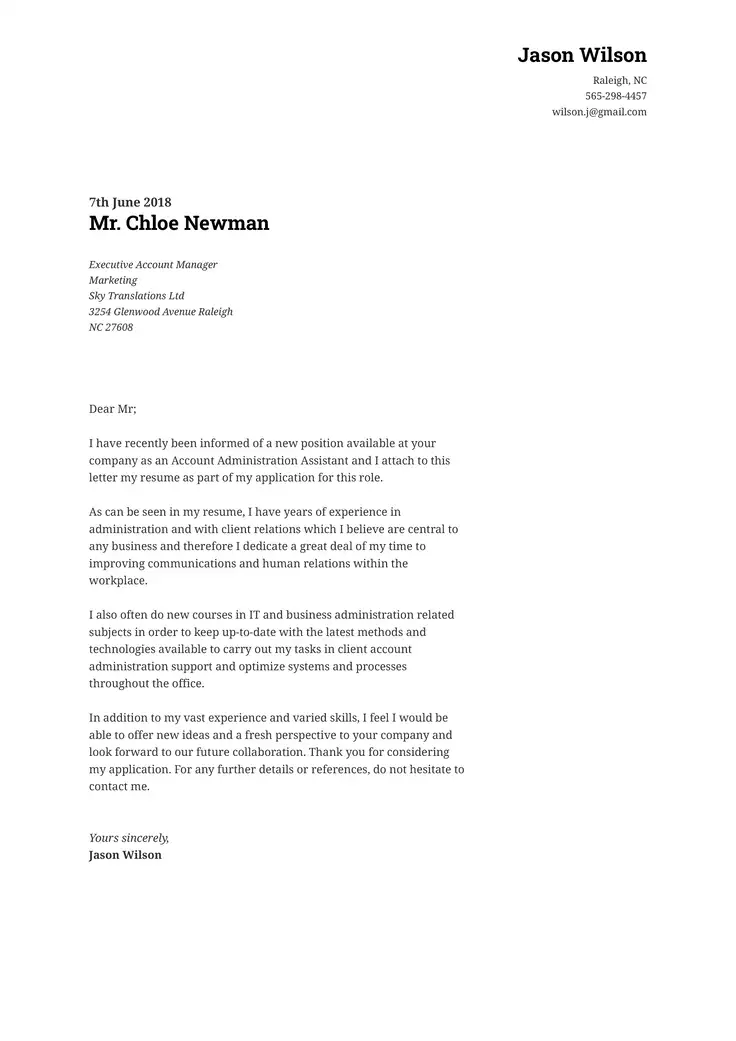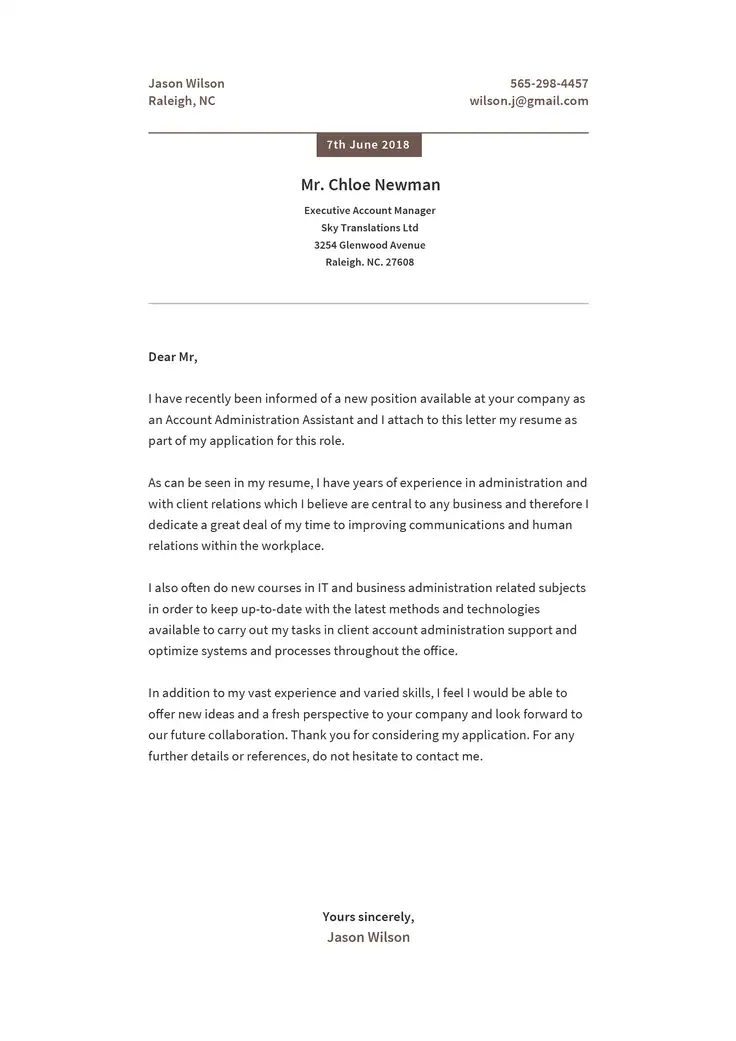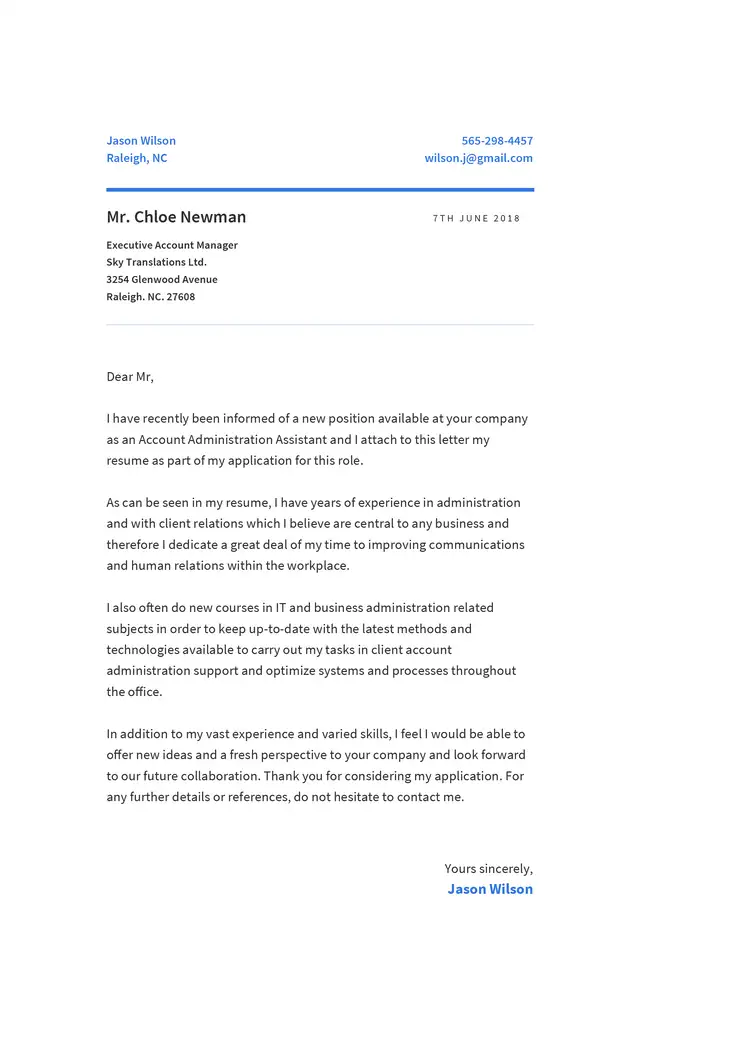Phlebotomist Cover Letter Examples and Writing Tips
Phlebotomist cover letters have one main job: quickly demonstrate to employers that you can handle patient care, specimen collection, and safety protocols. Use the example below and our writing tips to highlight your skills and stand out in clinics, labs, or hospitals.
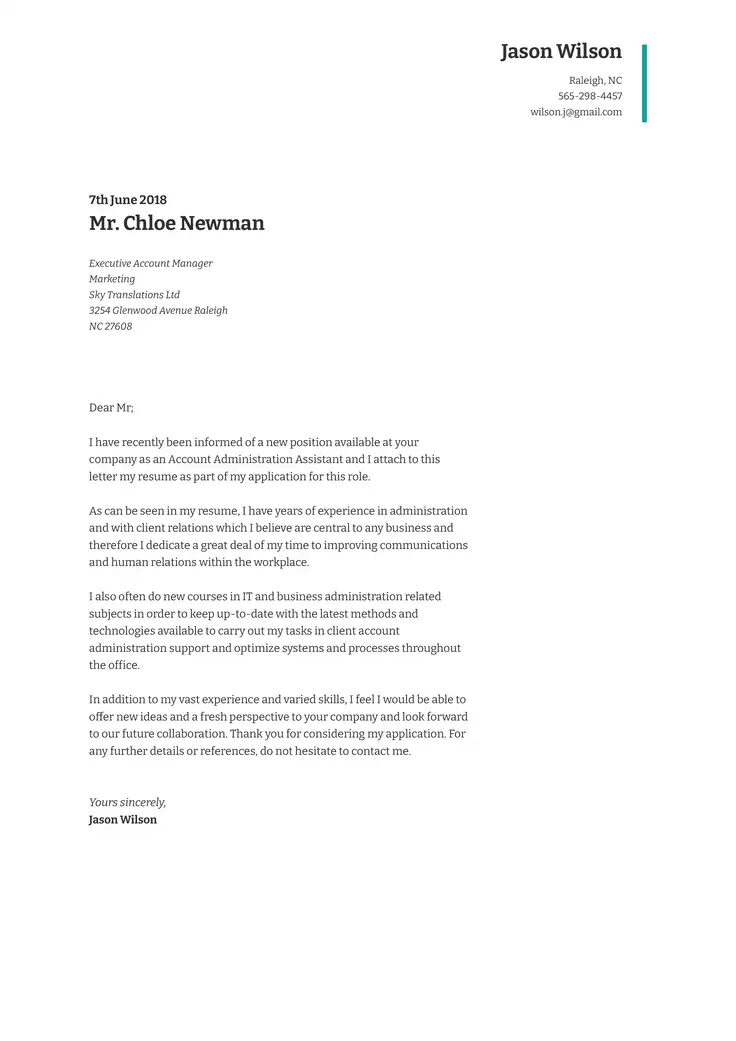
Are you a Phlebotomist that is ready to take the first leap in your career? Or are you ready for a new exciting challenge? Either way, you’ll need the application that proves you can provide a hospital or clinic with the appropriate services.
The best way to do that and get the result you want back from a hiring manager is to build an organized resume and write an engaging cover letter.
That’s right, it’s a good idea for you to take the time to create a cover letter.
But are you not sure how to write one?
If that’s the case, this article will help you:
- Prove that you have the qualifications to help a health center as a Phlebotomist
- Show off your past success
- Explain your previous related responsibilities
- Demonstrate that you have the skills and motivation to succeed as an entry-level Phlebotomist
Cover letters are still an essential tool used to impress employers. In this article, you’ll find out how to write one that will make you a leading candidate.
Phlebotomist Example Cover Letter
First things first, let’s take a look at what a well-written Phlebotomist cover letter looks like. Check out the structure and language in the example below.
Use our cover letter writing guide to further help you draft a letter that shows off all your qualities.
Text Format
Hiring Manager’s name
Company name
Company address
Date
Dear Mr/Ms. [Hiring Manager Name]
Please accept my application for the Phlebotomist position being advertised with [Company]. I am excited to apply for this role as I believe that my profile fits the position perfectly.
In my 4 years of working as a certified Phlebotomist, I have built up a wealth of skills in blood sample collecting, EKG, and telemetry analysis, and diagnosis of blood disease. During this time I have demonstrated excellent patient handling skills, and competence with an error rate lower than 1%. Thanks to that, I’ve proven myself an invaluable team member at [Current Company].
While In my current position I have adapted to a busy hospital environment, attending to around 30 patients daily. I have been working closely with inpatients of varying ages and have often been commended for my adaptability and great rapport with fellow staff and patients.
Please find my resume enclosed with this cover letter, where I have provided further information on my work history so far. I would, of course, be more than happy to discuss any details about my career in more depth via a face-to-face interview.
Thank you for considering my application. I look forward to hearing from you in the future.
Sincerely,
Name
Address
Phone number
Email address
Grabbing an Employer’s Attention: How to Write an Intro
The purpose of the first few lines of your letter are to make the hiring manager interested in your application.
There are a few things that you can do:
- Highlight relevant skills: Immediately establish your credentials as a phlebotomist. Show off a specific skill set, such as your adeptness in specimen collection or maintaining patient safety and comfort.
- Refer to certifications: If you’re certified by a recognized body, such as the American Society for Clinical Pathology (ASCP), include this in your intro. It’s a great way to establish your qualifications.
- Show enthusiasm: A hiring manager wants to see that you’re passionate about your work. Your enthusiasm for phlebotomy, patient care, and the opportunity at hand should be obvious.
- Speak to the institution’s needs: Research the institution to understand its needs and services. Tailor your introduction to how you can address these needs with your phlebotomy skills.
Here’s an example of how to start your cover letter with a great opening:
As an ASCP Certified Phlebotomy Technician with over 5 years of experience in high-volume hospital settings, I am excited to apply for the Phlebotomist role at [Company’s Name]. My adeptness in venipuncture, specimen processing, and commitment to providing empathetic patient care aligns with your team’s high standards. My consistent track record in delivering safe and efficient services is one I’m eager to bring to your esteemed organization.
This introduction quickly manages to communicate the candidate’s qualifications, experience, specific skills, and suitability for the role.
Address the Health Center’s Needs: Listing Your Experience
Your job experience is a key part of your application and with a cover letter, you can demonstrate that you were a successful part of your previous health center’s staff.
Not only that you can show that you performed your duties but if you can add some information about patient satisfaction, you’ll be flying.
That means you’ll want to mention your:
- Past productivity
- Qualifications
If you add these details to the body of your letter, you’ll be setting yourself up for success.
Demonstrate Your Productivity
While adding experience is key, simply writing what your responsibilities were or the years you’ve worked isn’t enough. It’s always best to really highlight how valuable you were to your previous employers!
That means you should mention impressive data that gives more context to your previous duties. You should touch on the following subjects:
- Daily amount of procedures performed
- Patient satisfaction
- Compliance with safety standards
- Low error rate
- Teamwork and collaboration
You can see how you can include these elements successfully in your cover letter by studying the following example:
In my previous role at [Previous Company’s Name], I successfully performed an average of 40 venipunctures daily while maintaining an error rate of less than 1%. I consistently adhered to safety protocols, ensuring proper use of PPE and appropriate disposal of needles, which contributed to an accident-free work environment. Through effective collaboration with my team, we improved patient turnaround times by 20%, and my efforts were often recognized in patient feedback as contributing to their positive experience.
Mention Your Phlebotomist Qualifications
Another element of a well-written cover letter are your qualifications. These should be mentioned no matter your level of experience.
As a Phlebotomist, you should make it clear that you possess the following:
- Minimum GED or high school diploma
- Certificate from a phlebotomy program
You can become certified at 3 different levels, which are:
- Limited Phlebotomy Technician
- Certified Phlebotomy Technician I
- Certified Phlebotomy Technician II
Without certain certifications you won’t find work, simple as that. Ensure the employer knows you have them.
What to Write When You Have No Experience as a Phlebotomist
Whatever job you apply for, when you’re just starting out, it can be a bit confusing to decide what you can add to a cover letter or resume.
However, as an entry-level Phlebotomist, you can still create an application that helps you land a job, especially if a clinic is advertising an entry position.
There are several things you can do to highlight your desire and capabilities even if you don’t have any direct experience as a Phlebotomist, such as:
- Mentioning related coursework
- Showing your enthusiasm
- Mentioning skills from other experiences
If you can do these throughout your letter, your lack of experience won’t be that noticeable. Let’s break down these strategies a bit more.
Show Your Enthusiasm for Phlebotomy
The number one thing that you should demonstrate in your cover letter is that you enjoy your work and how much you want to keep improving. You could mention the fact that you like to work with patients and feel that you are helping others.
Here’s an example:
I’ve always been fascinated by the field of phlebotomy, particularly how the careful collection and analysis of blood samples can aid in diagnosing various medical conditions. The opportunity to make such a vital contribution to patient care is something that excites me and I would like to continue improving in this area.
Highlight Your Skills From Other Jobs
At this point, you’ve likely worked in a distinct field or have completed training or an internship. If that’s the case you shouldn’t miss the opportunity to mention some related skills that you picked up during those experiences.
There are always skills that can translate even if your previous job isn’t related to phlebotomy. Here’s an idea of what you could say in your cover letter:
Working as a waiter in a bustling restaurant, I developed a steady hand and the ability to perform precise tasks under pressure – skills directly transferable to a phlebotomist’s role. Additionally, my experience as a school counselor has equipped me with the ability to calm individuals in distress, a quality that will assist in soothing patients anxious about blood draws.
Show Off Your Phlebotomy Related Courses
You may have taken a biology class and learned about the human circulatory system. Or you’ve taken a lab class where you’ve handled test tubes and other delicate equipment. These experiences can come in handy.
Highlighting that you’ve been educated in these areas can prove that you’re already familiar with some parts of the job.
For instance, you could add something similar to the following:
During my biology coursework, I gained a strong understanding of the human circulatory system, which I understand is crucial knowledge for a phlebotomist. Further, my laboratory classes gave me hands-on experience with handling delicate equipment and maintaining stringent safety protocols, preparing me for similar requirements in a phlebotomy setting.
Hit on the Phlebotomy Keywords
In your cover letter, whether you are experienced or not, ensuring that you add the right keywords throughout the text is a great idea. Your letter may be reviewed by the Applicant Tracking System or directly by the hiring manager.
Either way, some words can stick out and show that you have the necessary skills to do a great job.
Here are certain keywords that you should add to your cover letter:
Words to use
- Venipuncture
- Patient care
- Specimen collection
- Safety protocols
- Strong listener
- Laboratory procedures
- Emotional intelligence
- Blood collection techniques
By using words and phrases like these on your cover letter to describe yourself, you can stand out even more in a positive light.
Key Points
Writing a Phlebotomist cover letter isn’t going to be easy if you just try to wing it. Using a resume template or builder to organize your qualifications and experience will help. However, if you follow the tips in the guide, you won’t have any trouble writing your letter in no time.
Just remember to:
- Demonstrate your previous productivity with data
- Use the right keywords throughout your cover letter
- Highlight your certifications and skills
- Mention your motivation and education if you are an entry-level Phlebotomist
If you can use these points to your advantage, you should have a much easier time applying for your next position.
Related Cover Letters

